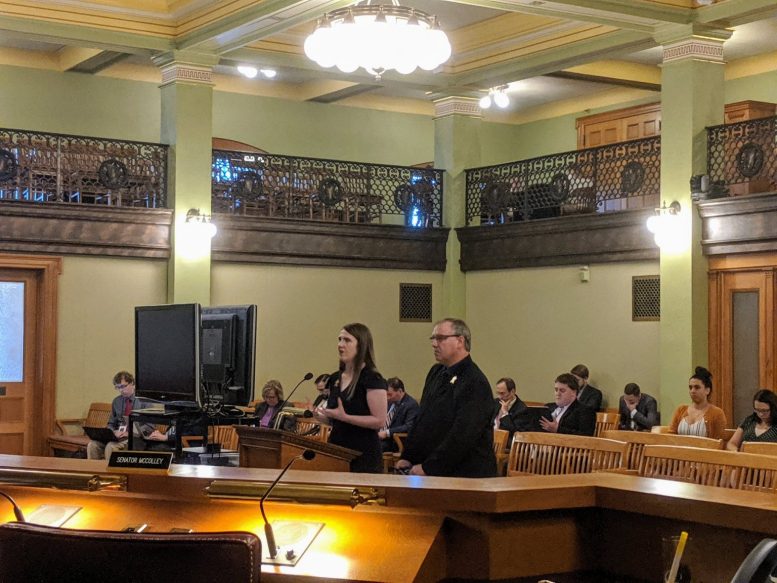Ohio Capital Journal
A state Senate committee is looking over a bill that would shore up the college transfer process for students weary of losing completed coursework along the way.
The Senate Higher Education committee fielded testimony Thursday on House Bill 9, which supporters say will increase the rate of students who wind up earning degrees. The committee didn’t ultimately move the legislation.
HB 9, if passed, would require schools to report to students and the state as to why a credit didn’t transfer; help dropouts cobble their credits into associate’s degrees; and waive all costs to students on a college credit under a narrow set of circumstances.
The legislation would require the state to develop a digital management tool to help transfer students move credits around between schools, and require both the student and the state be notified when a university refuses to accept a transfer credit.
If students who meet a broad swath of requirements and are in their “final year” in college and can’t enroll in their final course due to circumstances beyond their control (lack of availability in a given semester, etc.), the bill requires that university to waive tuition and general fees for that last course.
The bill also requires universities to review their records every two years to identify students who did not complete their bachelor’s degree and determine if they qualify for an associate’s degree.
“With being one of the most recent college graduates of this General Assembly, I have experienced students being left behind, hindered and unable to enter into the workforce because of issues we control,” said Rep. Bride Rose Sweeney, D-Cleveland, who sponsored the legislation with Rep. Don Jones, R-Freeport.
The House passed the bill on a 95-0 vote in June. Thursday marked the committee’s third review.
In an interview after the hearing, Senate Higher Education Chairwoman Stephanie Kunze, R-Franklin, said she didn’t know when she’d put the bill up for the vote.
“Obviously, it’s a priority for the House, so we want to make sure we’re giving it its due diligence,” she said.
On Thursday, Jack Hershey, president of the Ohio Association of Community Colleges, which represents 23 public community colleges in Ohio, offered his support for the legislation.
“We hear instances where our students leave us, they’re not a lot … but they go to another university, they call back and say, ‘I thought you told me this course would transfer,’” he said.
“What House Bill 9 does is try to formalize the process a little bit more and say if you’re going to deny a course transfer, number one you have to notify the Department of Higher Education why and you have to notify the student as to the remedies they have with the state.”
In a statement after the House passed the bill, House Speaker Larry Householder, R-Glenford, said the legislation would help more students graduate in four years.
“Many of our students attending institutions of higher education are not completing their degrees in four years or less,” Householder said. “This legislation will help students enter the workforce and begin their careers. When students are having to stay longer to complete a degree, they are accumulating more debt. It’s time we help our students stay on track with their education or help them see if they’re eligible for an associate’s degree or certificate.”





